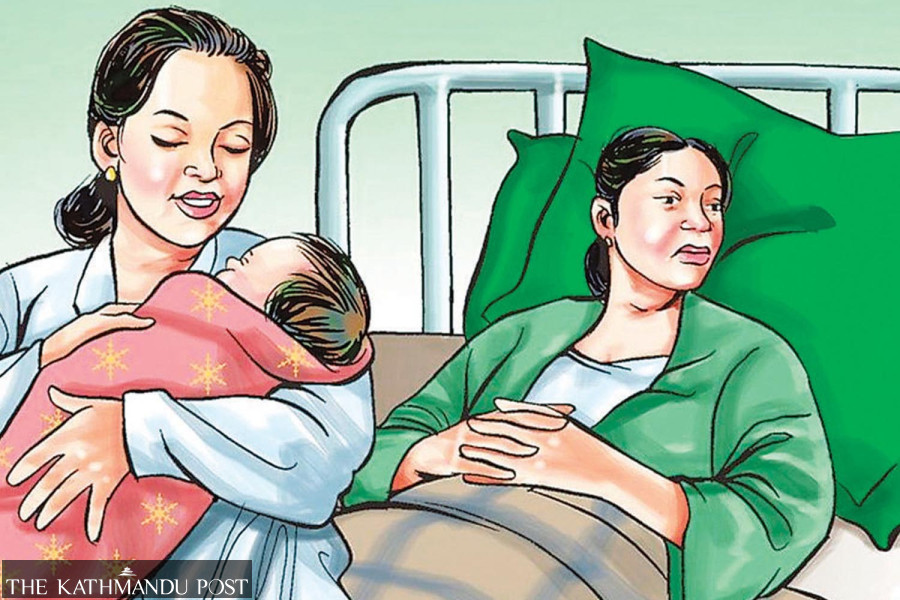Health
Mobile app to promote maternal and neonatal health
Officials hope that the app will help promote breastfeeding, breastfeeding practices, antenatal and postnatal care, and child’s feeding practices.
Post Report
In a bid to promote maternal and neonatal health, the Ministry of Health and Population on Sunday launched ‘Mero Poshan Sathi’, a mobile app designed to help people make informed decisions about their health and nutrition behaviour.
Officials hope that the new app will help promote breastfeeding, exclusive breastfeeding practices, antenatal and postnatal care, and child’s feeding practices, among others.
“Once the app is downloaded on the Android mobile and registered by the user, it automatically keeps alerting people with nutrition and health-related messages,” said Lila Bikram Thapa, chief of the nutrition section at the Family Welfare Division under the Department of Health Services. “This app is designed to help people at various stages of their life—pregnancy, lactating, caregiving, taking care of children below five years, adolescent and old age—to make informed decisions regarding health and nutrition behaviours.”
Studies show that Nepal’s maternal and neonatal health has been improving over the years but not at the pace to meet the United Nations-backed Sustainable Development Goals (SDGs) of health care.
The SDGs, a follow-up on the Millennium Development Goals (MDGs), aim at ending poverty and hunger and all forms of inequality in the world by 2030, and Nepal has committed to meeting the target.
According to the Nepal Demographic and Health Survey-2022, breastfeeding has been continuously declining from 70 percent in 2011 to 56 percent last year despite spending millions of rupees every year on the awareness drive.
The report showed that the exclusive breastfeeding rate has fallen from 66 percent in 2016 to 56 percent in 2022.
Health officials are concerned that more educated and well-off mothers are less likely to exclusively breastfeed their babies, as shown by the studies.
Along with breastfeeding practices, the app will alert parents about their children’s feeding habits and their growth monitoring, encourage pregnant women to receive antenatal and postnatal care, and take iron folic acid regularly.
“This app is not only useful to pregnant women and new mothers but also to the adolescent and elderly people,” said Thapa. “Once it is downloaded and registered, even the internet is not necessary to get health tips.”
The app, developed with the technical support of the United States Agency for International Development, enables access to information about health and nutrition service delivery points in their surroundings in Nepal.




 10.12°C Kathmandu
10.12°C Kathmandu














